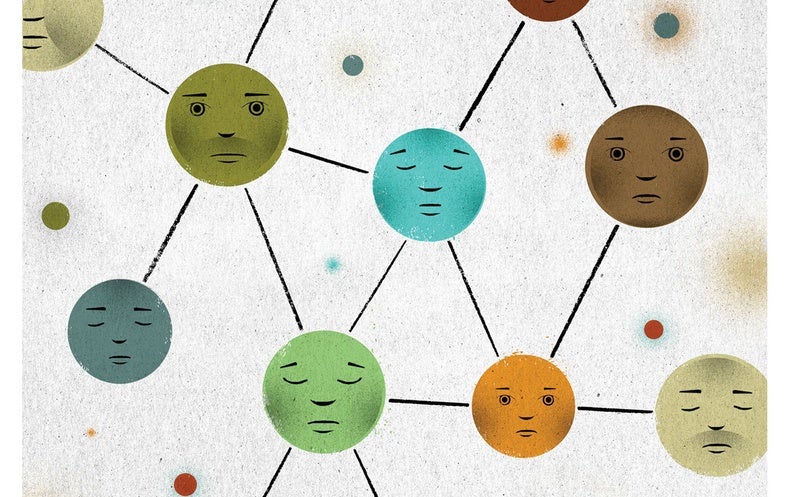Organizations increasingly turn to Emotional Intelligence (EI) to foster a more inclusive and diverse workplace. This goes beyond the realm of traditional hiring practices and diversity training.
Emotional Intelligence for Diversity and Inclusion in the Workplace
Emotional Intelligence is the capacity to understand, use, and manage our emotions positively to relieve stress, communicate effectively, empathize with others, overcome challenges, and resolve conflicts. EI consists of four key elements: self-awareness, self-management, social awareness, and relationship management.
- In a diverse workplace, self-awareness means recognizing our emotions and how they influence our thoughts and behavior. It also involves understanding how cultural biases and stereotypes may shape our perceptions and reactions toward others.
- Self-management involves controlling emotions, managing impulsiveness, fulfilling commitments, and adapting to change to foster a harmonious and inclusive environment.
- Social awareness involves understanding the emotions, needs, and concerns of others. In a diverse workplace, being socially aware can help us recognize and appreciate the unique perspectives and experiences of people from various backgrounds.
- Relationship management is about establishing and maintaining good relationships, communicating clearly, inspiring and influencing others, working collaboratively, and managing conflict to maintain positive and productive working relationships.
These skills are essential in promoting and upholding cultural diversity in the workplace. Each component is crucial in cultivating an environment where diverse perspectives are tolerated, valued, and utilized for the entire team's benefit.
Developing Emotional Intelligence through the RULER Approach
One practical framework that embodies the concept of emotional intelligence is Yale Center for Emotional Intelligence's RULER approach. The RULER approach, an acronym for Recognizing, Understanding, Labeling, Expressing, and Regulating emotions, provides valuable insights into the role of emotional intelligence in appreciating, accepting, and valuing diversity among employees. It contributes to the creation of a positive and inclusive work environment.
The RULER approach provides a critical framework for developing emotional intelligence within yourself and your team.
- Acknowledging emotions is the initial stage in the RULER approach. This entails being conscious of the nuanced indicators in body language, vocal tone, and facial expressions, which enable us to gain a more profound understanding of our own emotional condition and that of our coworkers.
- Understanding emotions involves grasping the causes and consequences of our feelings. This understanding can help us appreciate why individuals from different backgrounds may react differently to the same situation, thus fostering a more accepting and inclusive environment.
- Labeling emotions accurately can help us communicate our feelings effectively and understand those of others. In a diverse workplace, this can help prevent misunderstandings and create an atmosphere where everyone feels understood and valued.
- Expressing emotions requires articulating our feelings effectively and appropriately. In an inclusive workplace, everyone should feel at ease expressing their emotions without fear of judgment or backlash.
- Regulating emotions, perhaps the most challenging aspect of the RULER approach, involves managing our own emotions effectively and helping others do the same. Successful regulation of emotions can cultivate a workplace that thrives on mutual respect and understanding, regardless of cultural differences.
Building emotional intelligence is an ongoing journey, but the RULER approach provides a roadmap:
- Develop recognition of emotions: Practice mindfulness and reflect on your emotions. Pay attention to nonverbal cues in others to recognize their emotional states.
- Deepen understanding of emotions: Explore the 'why' behind your feelings and those of your colleagues. Appreciate the cultural influences that shape these emotions.
- Enhance labeling of emotions: Improve your emotional vocabulary. Aim to articulate your feelings accurately and encourage your colleagues to do the same.
- Cultivate expressing emotions: Create a safe space for yourself and others to express emotions openly and respectfully.
- Improve regulation of emotions: Develop strategies to manage your emotions, especially during challenging situations. Foster emotional well-being in the workplace by sharing these strategies with your team. This could involve techniques such as mindfulness, cognitive reframing, or simply taking a break when emotions run high. Practicing these techniques can help individuals respond rather than react to emotional triggers.
The role of emotional intelligence in building a culturally diverse workplace is indispensable, and the RULER approach is a powerful tool to assist in this endeavor. Organizations can create a truly inclusive culture that benefits everyone by understanding, accepting, and valuing differences. This cultivates a more harmonious work environment and spurs innovation, productivity, and overall success.
Emotional intelligence, far from being a mere 'nice-to-have' in today's culturally diverse workplace, is a vital component of individual and organizational success. It's a journey of self-discovery and understanding others that can transform workplaces and society.
Resources










